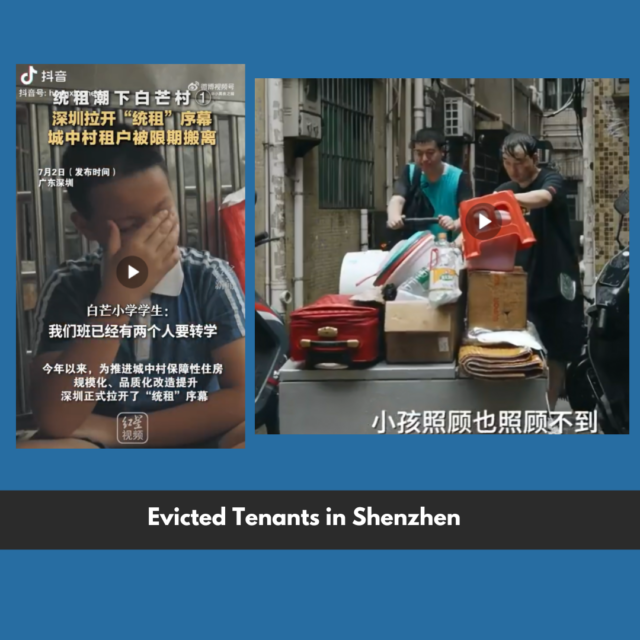China’s overpriced property market has forced many Chinese to continue renting homes. Not so well known is Shenzhen’s Unified Rental Housing Policy, that on the face of it, is pretty innocuous: it seeks to standardize the management of rental properties in specific areas, regulating the rental market and improving the quality of rental housing while ensuring fair treatment of tenants.
Last month, this policy came under focus after landlords in Baimang village issued notices asking their tenants to vacate. The incident came to light through a video that quickly spread on social media drawing more than 760,000 views.

It told the story of how people were being evicted from Baimang. It featured personal accounts of local residents forced to leave a city since they had no where else to go. One man questioned the purpose of the many years of struggle he experienced in Shenzhen and the psychological impact on his children who had to leave friends behind. Others expressed helplessness and uncertainty about the future.

China’s tough civil code does not provide any recourse for tenants. Authorities have the right to terminate rental contracts at short notice. Tenants have to find alternative housing on their own.
The Unified Rental Housing Policy also favours individuals between the ages of 18 and 40. This is seen as unfair to older residents, especially middle-aged people who have spent a significant part of their lives in Shenzhen. Although many see Shenzhen as home, the rental policy gives them no option but to leave.
There is something else. There is a widespread belief in China that employers are reluctant to hire individuals over the age of 35. Advertisements for jobs invariably carry age restrictions that favour younger people, leaving out many capable and experienced workers in their prime.
Is there a link between the rental policy and the age requirements for jobs? No government will ever acknowledge such a link, but forced evictions and rising rents for housing have led to a public backlash. Many of the complaints on social media likened the rental policy to “Eating your flesh, drinking your blood, stripping your skin, and extracting your tendons. What benefits does this approach bring? “Why does the government need to intervene?”

China’s rapid economic development has been accompanied by extensive urbanization and infrastructure projects across the country. However, the dark side of this progress is the forced relocation of residents from villages and communities to make way for development. While these projects promise economic growth and improved living conditions, they often come at the cost of displacing individuals from their homes and communities.
















